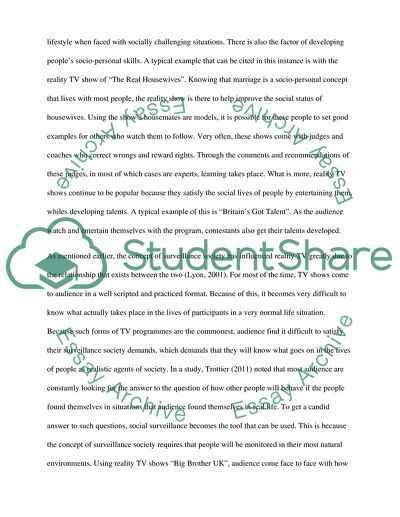Cite this document
(“Reality TV in relation to television Essay Example | Topics and Well Written Essays - 1000 words”, n.d.)
Retrieved from https://studentshare.org/media/1645515-reality-tv-in-relation-to-television
Retrieved from https://studentshare.org/media/1645515-reality-tv-in-relation-to-television
(Reality TV in Relation to Television Essay Example | Topics and Well Written Essays - 1000 Words)
https://studentshare.org/media/1645515-reality-tv-in-relation-to-television.
https://studentshare.org/media/1645515-reality-tv-in-relation-to-television.
“Reality TV in Relation to Television Essay Example | Topics and Well Written Essays - 1000 Words”, n.d. https://studentshare.org/media/1645515-reality-tv-in-relation-to-television.


